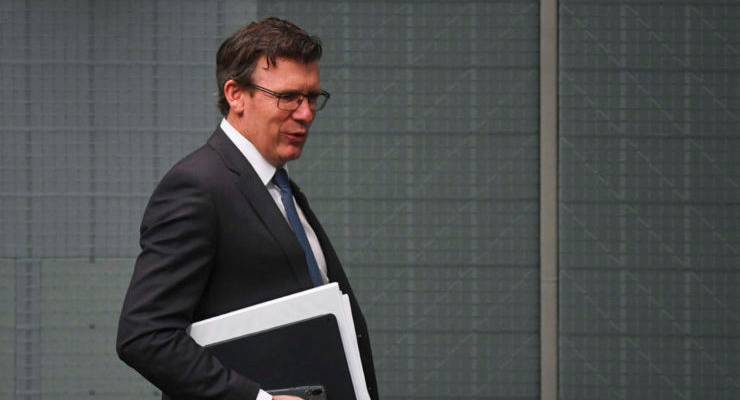
What to do about the car park rort? Can we get the money back?
Well theft is theft. The law, for all its complexities, ultimately derives from some basic propositions, one of which is that stealing is wrong.
The $660 million appropriated for the car parks fund was public money — but it doesn’t belong to the public. The federal government is an entity, which raises money by various means including taxation and borrowing and then appropriates it for spending. It owns the money; if the money is stolen, it is the Commonwealth that has the legal right to get it back.
Give up your thoughts of suing to recover your money; it’s not yours.
There are two theoretical means by which these misappropriated funds could be recovered — both based on establishing the misappropriation itself, meaning that the money was spent in a manner that fell outside the minister’s legal powers.
That shouldn’t be too hard, since the funds were appropriated for the specific purpose of “encourag[ing] greater use of public transport”. If their application ends up serving that purpose to any extent, it will be purely by accident.
If the spending was unlawful, its recipients are in possession of the proceeds of crime. Or to put it less theatrically, they have been the beneficiaries of misappropriated funds and the Commonwealth has a good claim to claw it back.
Second, the Public Governance, Performance and Accountability Act provides that if a minister causes a loss to the Commonwealth by “misconduct” they are personally liable to reimburse it for the loss on a just and equitable basis. The Commonwealth could simply issue an invoice to the minister in charge of infrastructure at the time, Alan Tudge, and Prime Minister Scott Morrison to refill the pillaged coffers.
As for the criminal consequences of stealing public money, the common law crime of misconduct in public office seems a good fit. The car parks fund was created for a public purpose, then taken and spent on a private one: the direct political interests of the ruling party, specifically its desire to be reelected.
Tudge would say that within the rules of the fund’s appropriation he was entitled to behave exactly the way he did, and therefore didn’t act unlawfully. While those rules were ridiculously slack and no attempt was made to apply even rudimentary governance (it was literally a slush fund), that is not a complete answer.
There is a point at which the kind of industrial-scale rorting in which the Morrison government has been rampantly engaging, and which (as we’re learning more and more) it escalated to wholesale theft during the 2019 election campaign, falls so far below even the lowest threshold of ostensible propriety that the courts have to see it for what it is and be prepared to hold its perpetrators to account.
Anyway, that’s the theory. For any consequences to actually be applied to this stinking mess, the Commonwealth would have to care enough to bother doing something about it. Obviously the current government won’t be interested in suing to recover the money it consciously misspent. As for criminal charges, that would require positive action by the Australian Federal Police. Enough said.
Nothing will happen, and this fraud too shall pass. The stench remains, for what that’s worth.








That a government can be so blatantly corrupt is painful enough, but even more painful is the stupidity of the populace that is prepared to accept it.
I’ve been saying that about Australians since I arrived here forty+ years ago.
Smirko and friends have reached a point where the ability and tools to censure them for misfeasance in public office are not available. Have we descended (unwillingly) to the ‘Dirty Harry’ option? Apparently the Brits used to hang an Admiral or two after a defeat in order to ‘encourage the others’! Has this ‘government’ sunk to the point that a similar option is a brutal but viable deterant?
Come the revolution, comrade, they’ll be begging for the mercy of being hanged! 😀
Hanging? Rather hanging , drawing and quartering
Too kind – forget the hanging, get straight into the viscera.
Probably bearable…as long as we, the People, get to choose who gets strung up! I’ve got a long list of candidates 🙂
Revolutions always eat their children – it is always those who stayed safe, whilst shouting encouragement, who emerge to rule.
How about a documentary about this crook, rorting government? “Dude, Where’s My Carpark?”
“The stench remains, for what that’s worth.” Is that why the government is so, shall we say, “relaxed” about fighting COVID? If you get COVID you lose your sense of smell.
“Ask a lawyer”? You are kidding. Surely?
Only a fool seeks remedy in the Law.